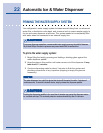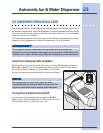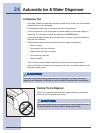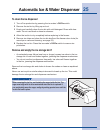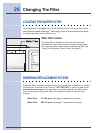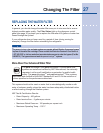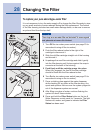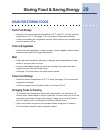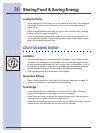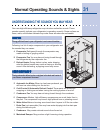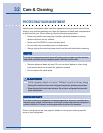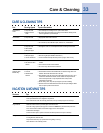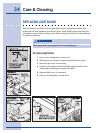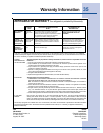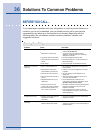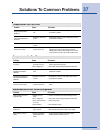
30
Storing Food & Saving Energy
Loading the Freezer
• Avoid adding too much warm food to the freezer at one time. This overloads
the freezer, slows the rate of freezing, and can raise the temperature of
frozen foods.
• Leave a space between packages, so cold air can circulate freely, allowing
food to freeze as quickly as possible.
• Avoid storing hard-to-freeze foods, such as ice cream and orange juice, on
the freezer door shelves. These foods are best stored in the freezer interior
where the temperature varies less.
IDEAS FOR SAVING ENERGY
Installation
• Locate the refrigerator in the coolest part of the room, out of direct sunlight,
and away from heating ducts or registers. Do not place the refrigerator next
to heat-producing appliances such as a range, oven, or dishwasher. If this is
not possible, a section of cabinetry or an added layer of insulation between
the two appliances will help the refrigerator operate more efficiently.
• Level the refrigerator so that the doors close tightly.
Temperature Settings
• Refer to earlier sections in this Use & Care Manual (beginning on page 12)
for recommendations on temperature control settings.
Food Storage
• Avoid overcrowding the refrigerator or blocking cold air vents. Doing so
causes the refrigerator to run longer and use more energy.
• Cover foods and wipe containers dry before placing them in the refrigerator.
This cuts down on moisture build-up inside the unit.
• Organize the refrigerator to reduce door openings. Remove as many items as
needed at one time and close the door as soon as possible.



